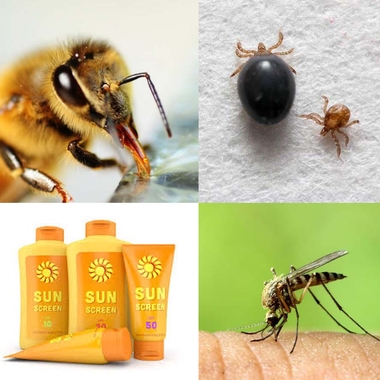Be safe for summer

by Mary Turner
HIV/AIDS Education Columnist
Three of the most essential things for our well-being are sunshine, fresh air and friends. And, after being cooped up inside during the cold and rain and gloom, summer allows us to get outside and play.
There are some precautions to take, so the benefits don’t turn into hazards. We should all pay attention to these risks and take steps to minimize them, especially those with compromised immune systems.
Our skin is the largest organ on our body and the first line of defense against most of the ugly stuff out there waiting to get us. Soft, hydrated, moisturized skin serves as a barrier keeping what should stay inside, inside, and what should stay outside, outside.
Protect your skin when you’re outside, especially if you will be out for a period. Even heavily pigmented skin burns, so apply sunscreen right before you go into the sun and reapply every hour or so for sun exposure. A person with dark skin may only need an SPF of 15 or 20, but a very fair person might need an SPF of 60.
Clothing isn’t necessarily protection from harmful rays, although it helps. Most light-weight fabrics, especially those white or light in color, allow ultraviolet rays to pass through to your skin. A parasol or umbrella, a floppy hat, and good sunglasses can help prevent damage to your eyes and skin.
Bugs can really bug you when you go out, too. Besides being annoying, mosquitoes are one of the most dangerous creatures on earth (IMO, they have no redeeming social value). Besides buzzing around your head, mosquitoes will bite you and suck your blood.
It’s the female mosquitoes that bite you and suck your blood. They need blood to develop their eggs so they can create another annoying crop of mosquitoes.
Mosquitoes tend to be attracted to carbon dioxide, the gas we breathe out of our bodies so we can replace it with oxygen. They also apparently like movement and moisture. Physical activity causes certain secretions such as lactic acid and sweat, which causes body odor. This moisture drives female mosquitoes wild. Also, they love people with Type O blood much more than those with Type A blood (dang it!).
Besides mosquitoes, biting flies and stinging insects can also pose a threat. These are also attracted to sweat and certain body odors. Though these pests tend to be more of a nuisance than anything else, insect stings send about half a million people to the emergency room each year, mainly due to allergic reactions.
Unlike soft, furry, happy little honeybees which can only sting you once because each sting is a suicide mission for them, other kinds of bees, wasps, yellowjackets, and hornets can and will sting you repeatedly. They don’t play. Unfortunately, they all like (or dislike) certain colors, movements, sweet sugary things we eat and drink, and other things we eat and drink.
Some of you may experience arachnophobia, but it’s usually not spiders carrying disease. Cue the scary music and watch out for another eight-legged menace: It’s Ticks!
Like mosquitoes, ticks crave your blood and aren’t terribly picky about whose blood they suck. Ticks range in size from barely visible to the naked eye up to a few millimeters and will ambush anyone or anything walking through the grass and weeds where they are. They anchor themselves securely into your flesh and drink your blood until they expand to many times their original size. Then they drop off to do whatever eight-legged blood-sucking demons do when they’re full.
Use care when removing a tick because they vomit toxins into their hosts (you) when they are agitated, and these can cause a whole lot of diseases which take weeks, months, or years to recover.
Please remember, though, outside potentially having more health benefits and hazards if you plan well. So, use sunscreen, wear a hat and shades, and surround yourself with loud, stinky people who drink fruity drinks and have Type O blood. Oh, and they should be heavy breathers.
That should set you up for all the fun you can handle.
Copyright The Gayly. 7/22/2019 @7:02 a.m. CST.





